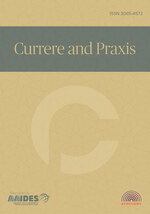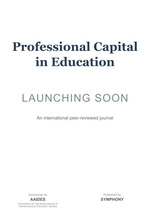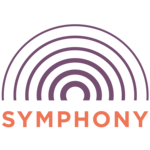Future-proof learning outcomes for classroom music teacher education: A Europeanwide exploration
DOI:
https://doi.org/10.70116/2980274182Keywords:
classroom music, curriculum, future demands, learning outcomes, music teacher educationAbstract
Equipping school-based music teachers with future-proof competences for meaningful classroom music in primary and secondary education, can be approached in different ways. One way is to facilitate music teacher education by formulating and disseminating future-proof learning outcomes that capture current and future demands of the music teaching profession. As part of the Erasmus+ Teacher Academy, the ‘Teacher Education Academy for Music’ (TEAM), we are developing a data-based set of descriptors that define the expected learning outcomes for future music teachers in schools. We take two existing (and widely used) sets as a starting point, and are updating them based on data collection and discussion. The purpose of the current study is to determine current and future-oriented trends in existing institutional, regional and national sets of descriptors, throughout Europe, which have been collected from stakeholders in the TEAM project and the EAS network. Through open coding, with guiding inclusion and exclusion criteria, 6 dominant emergent themes have been defined: (1) collaborations, (2) digitisation, (3) diversity & inclusion, (4) global (artistic) citizenship, (5) interdisciplinarity, and (6) practitioner research & professional development. We discuss the findings in relation to the current (international) discourse in music education and look forward to the potential impact of the findings on the concept and formulation of the new set of learning outcomes in Europe.
Downloads
References
Arts Professionals Media Group (2023). Music teacher recruitment‘ not good enough‘. Retrieved January 30, 2025, from https://www.artsprofessional.co.uk/news/newsreel/music-teacher-recruitment-not-good-enough
Bath, N., Daubney, A., Mackrill, D., & Spruce, G. (2020). The declining place of music education in schools in England. Children & Society, 34, 443–457. https://doi.org/10.1111/chso.12386 DOI: https://doi.org/10.1111/chso.12386
Biggs, J. (2014). Constructive alignment. Retrieved January 30, 2025, from https://www.johnbiggs.com.au/academic/constructive-alignment/
Biggs, J., Tang, C., & Kennedy, G. (2022). Teaching for quality learning at university: What the student does. Open University Press.
Buchborn, T., Burnard, P., Hebert, D. G., & Moore, G. (2022). Reconfiguring music education for future-making: how? Music Education Research, 24(3), 275-281.
https://doi.org/10.1080/14613808.2022.2076821 DOI: https://doi.org/10.1080/14613808.2022.2076821
Buchborn, T., & Malmberg, I. (2013). Forschung aus der Perspektive musikpädagogischer Praxis [Research from the perspective of music education practice]. Diskussion Musikpädagogik, 57(13), 4-13.
Buchborn, T., & Treß, J. (2023). Acting self-determinedly and critically in a post-digital future? A critical review on digitalisation in music education. Culture, Education, and Future, 1(1), 66-82. https://doi.org/10.5281/zenodo.8010504 DOI: https://doi.org/10.70116/298027415
Burnard, P., Dillon, S., Rusinek, G., & Sæther, E. (2008). Inclusive pedagogies in music education: a comparative study of music teachers’ perspectives from four countries. International Journal of Music Education, 26(2), 109-126. https://doi.org/10.1177/0255761407088489 DOI: https://doi.org/10.1177/0255761407088489
Cain, T. (2008). The characteristics of action research in music education. British Journal of Music Education, 25(3), 283-313. https://doi.org/10.1017/S0265051708008115 DOI: https://doi.org/10.1017/S0265051708008115
Cain, T. (2014). Self study, action research and other approaches to teachers’ practitioner research in music education. In T. De Baets, & T. Buchborn (Eds.), The reflective music teacher (European perspectives on music education, Vol. 3) (pp. 87-99). Helbling.
Camlin, D. A., & Lisboa, T. (2021). The digital ‘turn’ in music education (editorial). Music Education Research, 23(2), 129-138. https://doi.org/10.1080/14613808.2021.1908792 DOI: https://doi.org/10.1080/14613808.2021.1908792
CEDEFOP (2022). Empowering Teachers and Trainers to manage Change. Retrieved February 02, 2025, from https://www.cedefop.europa.eu/en/publications/9177
CEDEFOP (n.d.a). European Qualifications Framework (EFQ). Retrieved January 27, 2025, from https://www.cedefop.europa.eu/en/projects/european-qualifications-framework-eqf
CEDEFOP (n.d.b). Learning Outcomes. Retrieved January 27, 2025, from https://www.cedefop.europa.eu/en/projects/learning-outcomes
Cheng, L. (2025). The impact of generative AI on school music education: Challenges and recommendations. Arts Education Policy Review, 1-8. https://doi.org/10.1080/10632913.2025.2451373 DOI: https://doi.org/10.1080/10632913.2025.2451373
Clements, A. (2018). A postdigital future for music education: definitions, implications, and questions. Action, Criticism, and Theory for Music Education, 17(1), 48-80. https://doi.org/10.22176/act17.1.48 DOI: https://doi.org/10.22176/act17.1.48
de Vugt, A., Castelein, T., & De Baets, T. (Eds.) (2017). Ticket to ride: praktijkonderzoek in muziekeducatie [Ticket to ride: Practitioner research in Music Education]. Garant.
EAS (n.d.). European Association for Music in Schools. Retrieved March 13, 2025, from http://www.eas-music.org/
Elliott, D., Silverman, M., & Bowman, W. (Eds.) (2016a). Artistic citizenship: Artistry, social responsibility, and ethical praxis. Oxford University Press. DOI: https://doi.org/10.1093/acprof:oso/9780199393749.001.0001
Elliott, D., Silverman, M., & Bowman, W. (2016b). Artistic citizenship: Introduction, aims, and overview. In D. Elliott, M. Silverman, & W. Bowman (Eds.), Artistic citizenship: Artistry, social responsibility, and ethical praxis (pp. 3-21). Oxford University Press. DOI: https://doi.org/10.1093/acprof:oso/9780199393749.003.0001
Europass (n.d.). Description of the eight EQF levels. Retrieved January 27, 2025, from https://europass.europa.eu/en/description-eight-eqf-levels
European Commission (2022a). DigComp 2.2: The digital competence framework for citizens – with new examples of knowledge, skills and attitudes. Retrieved March 27, 2025, from https://publications.jrc.ec.europa.eu/repository/handle/JRC128415
European Commission (2022b). GreenComp: the European sustainability competence framework. Retrieved March 27, 2025, from https://joint-research-centre.ec.europa.eu/greencomp-european-sustainability-competence-framework_en
Eurydice (2009). Arts and cultural education at school in Europe. Retrieved 27 January, 2025, from https://data.europa.eu/doi/10.2797/28436
Feneberg, P. (in press). Creating music in VR: a study on virtual reality apps for creating music. In M. Stumpfogger, T. Buchborn, M. Gall, & S. Hennessy (Eds.), Liberty – equity – creativity: Innovating and inventing music in the classroom (European perspectives on music education, Vol. 13). Helbling.
Geudens, T. (2023). Kunstvakken op de sneltrein naar september [Art subjects on the express train to September]. Kunstzone. Retrieved January 30, 2025, from https://kunstzone.nl/kunstvakken-op-de-sneltrein-naar-september/
Geudens, T., & Overmeer, S. (2023). Kunstvakkenintegratie: zit daar muziek in? [Art subject integration: is there music in it?]. In T. De Baets, & A. de Vugt (Eds.), Beweging in Muziekpedagogiek: 10 jaar onderzoek en ontwikkeling [Movement in Music Education: 10 years of research and development] (Muziekpedagogiek in beweging, Vol. 5) (pp. 25-35). Euprint.
Hagenaars, P. (2020). Instruction and inability: Cultural education policy from Den Uyl to Rutte-III (Unpublished doctoral dissertation). Erasmus University Rotterdam.
Heberle, K., Kranefeld, U., & Ziegenmeyer, A. (Eds.) (2019). Studienprojekte im Praxissemester: Grundlagen und Beispiele Forschenden Lernens in der Musiklehrer_innenbildung in Nordrhein-Westfalen [Study projects in the practice semester: Principles and examples of research-based learning in music teacher education in North Rhine-Westphalia]. Waxmann.
Hennessy, S., Malmberg, I., Niermann, F., & de Vugt, A. (2009). meNet Lernergebnisse in der Musiklehrerbildung – meNet Learning Outcomes in Music Teacher Training. Institut für Musikpädagogik Wien.
Hennessy, S., Malmberg, I., Niermann, F., & de Vugt, A. (2013). meNet and EAS Learning outcomes: Music teacher training for specialists and generalists. In A. de Vugt & I. Malmberg (Eds.), Artistry (European Perspectives on Music Education, Vol. 2) (pp. 259-281). Helbling.
Impett, J. (Ed.) (2017). Artistic research in music: Discipline and resistance. Leuven University Press. DOI: https://doi.org/10.2307/j.ctt21c4s2g
Johnson, C., & King, A. (Eds.) (2025). Music, technology, innovation: Industry and educational perspectives. Routledge. DOI: https://doi.org/10.4324/9781003041474
Jones, C. (2009). Interdisciplinary approach - advantages, disadvantages, and the future benefits of interdisciplinary studies, ESSAI, 7(26). http://dc.cod.edu/essai/vol7/iss1/26
King, A., Himonides, E., & Ruthmann, A. S. (Eds.) (2017). The Routledge companion to music, technology, and education. Routledge. DOI: https://doi.org/10.4324/9781315686431
KMK (2008). Ländergemeinsame inhaltliche Anforderungen für die Fachwissenschaften und Fachdidaktiken in der Lehrerbildung [Common national requirements for the content of teacher education in the specialist subjects and their teaching methodology]. Retrieved October 16, 2024, from https://www.kmk.org/fileadmin/veroeffentlichungen_beschluesse/2008/2008_10_16-Fachprofile-Lehrerbildung.pdf
KVDO (2018). Opleidingsprofielen 2018 kunstvakdocentopleidingen [Profiles 2018 art teacher education programmes]. Retrieved October 16, 2024, from https://www.vereniginghogescholen.nl/system/profiles/documents/000/000/228/original/kvdo.op.2018.pdf
Liimets, A., & Mäesalu, M. (2011). Music inside and outside the school (Baltische Studien zur Erziehungs- und Sozialwissenschaft, Band 21). Peter Lang.
Malmberg, I., & Gall, M. (2025). Sustainable development goals and music education: Trainee music teachers‘ perspectives. In B. Freitag-Hild, S. Goertz, I. Malmberg & L. B. Juang (Eds.), Educating teachers for sustainable development and global citizenship: Internationalizing teacher education in the context of the UN sustainable development goals (Potsdamer Beiträge zur Lehrerbildung und Bildungsforschung, Vol. 8) (pp. 163-182) Universitätsverlag Potsdam. https://publishup.uni-potsdam.de/opus4-ubp/frontdoor/deliver/index/docId/66559/file/pblb08.pdf
MEB (2017). General qualifications for teaching profession. Retrieved October 16, 2024, from https://oygm.meb.gov.tr/meb_iys_dosyalar/2018_06/29111119_TeachersGeneralCompetencies.pdf
Moore, G., O’Flynn, J., Burgess, F., & Moore, J. (2023). Challenges for music in initial teacher education and in schools: Perspectives from music teacher educators in Ireland and Northern Ireland. Research Studies in Music Education, 47(1). https://doi.org/10.1177/1321103X231182259 DOI: https://doi.org/10.1177/1321103X231182259
Nápoles, J. (2024). Co-Teaching: A Review of Literature. Update: Applications of Research in Music Education, 0(0). https://doi.org/10.1177/87551233231226131 DOI: https://doi.org/10.1177/87551233231226131
Navarro, G. S. (2020). Outsourcing music education: A comparative analysis of public-school music education and arts organization programs (Unpublished master’s thesis). California State University, Northridge.
NVAO (2018). DLR Educatieve master in de muziek en podiumkunsten [DLR Educational master in music and performing arts]. Retrieved October 16, 2024, from https://app.akov.be/pls/pakov/f?p=VLAAMSE_KWALIFICATIESTRUCTUUR:ONDERWIJSKWALIFICATIE::::1030:P1030_OK_DOSSIER_ID:1167
NVAO (2019a). DLR Educatieve bachelor in het lager onderwijs [DLR Educational bachelor in primary education]. Retrieved October 16, 2024, from https://app.akov.be/pls/pakov/f?p=VLAAMSE_KWALIFICATIESTRUCTUUR:ONDERWIJSKWALIFICATIE::::1030:P1030_OK_DOSSIER_ID:1464
NVAO (2019b). DLR Educatieve bachelor in het secundair onderwijs [DLR Educational bachelor in secondary education]. Retrieved October 16, 2024, from https://app.akov.be/pls/pakov/f?p=VLAAMSE_KWALIFICATIESTRUCTUUR:ONDERWIJSKWALIFICATIE::::1030:P1030_OK_DOSSIER_ID:1463
Oebelsberger, M., Bernhofer, A., & Sammer, G. (Eds.) (2019). Joint (ad)venture music: Networking as a Challenge for Music Teachers (European perspectives on music education, Vol. 8). Helbling.
Russell-Bowie, D. (2009). What me? Teach music to my primary class? Challenges to teaching music in primary schools in five countries. Music Education Research, 11(1), 23–36. https://doi.org/10.1080/14613800802699549 DOI: https://doi.org/10.1080/14613800802699549
Schön, D. (1983). The reflective practitioner: How professionals think in action. Basic Books.
Shulman, L. S. (1987). Knowledge and teaching: foundations of the new reform. Harvard Educational Review, 57(1), 1-22. DOI: https://doi.org/10.17763/haer.57.1.j463w79r56455411
Stakelum, M., & Economidou Stavrou, N. (Eds.) (2015). Every learner counts: Democracy and inclusion in music education (European perspectives on music education, Vol. 4). Helbling.
TEAM (2025a). About TEAM. Retrieved February 3, 2025, from https://teacher-academy-music.eu/about-team
TEAM (2025b). WP6 Learning outcomes. Retrieved February 3, 2025, from https://teacher-academy-music.eu/WP-6
The Teaching Council (2020). Céim: Standards for initial teacher education. Retrieved October 16, 2024, from https://www.teachingcouncil.ie/assets/uploads/2023/08/ceim-standards-for-initial-teacher-education.pdf
Tuning Group (2014). EQF Level Descriptors Music. Retrieved February 2, 2025, from http://tuningacademy.org/wp-content/uploads/2014/02/EQF_Level_Descriptors_Music.pdf
UHR (2021). Nasjonale retningslinjer for lærerutdanning i praktiske og estetiske fag for trinn 1-13 [National guidelines for teacher education in practical and aesthetic subjects for grades 1-13]. Retrieved October 16, 2024, from https://www.uhr.no/_f/p1/id7e2ee5a-d046-4c10-8fda-b9a0f7672f40/nasjonale-retningslinjer-for-larerutdanning-i-praktiske-og-estetiske-fag-for-trinn-1-13.pdf
UNESCO (2024). What you need to know about global citizenship education. Retrieved January 27, 2025, from https://www.unesco.org/en/global-citizenship-peace-education/need-know
Winzer, M. A. (2007). Confronting difference: an excursion through the history of special education. In L. Florian (Ed.), The Sage Handbook of Special Education (pp. 21-33). Sage. DOI: https://doi.org/10.4135/9781848607989.n3
Downloads
Published
How to Cite
Issue
Section
License
Copyright (c) 2025 Symphony

This work is licensed under a Creative Commons Attribution 4.0 International License.














